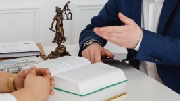I. Introduction
In common law jurisdictions, the trust is one of the most popular legal institutions for wealth management. And recently some civil law jurisdictions, such as Japan, South Korea and China have accepted the concept of trust and made their own trust statutes. China's Trust Law, adopted by the country's top legislature in April, took effect on October 1, 2001. The Law, regulating the fiduciary relations between the settlor, the trustee and the beneficiary, provides legal framework to develop trust business in China. Through thorough comparison between the China's Trust Law and those in common law jurisdictions, we can find the features of the trust in China, and get some conclusion on the merits and the demerits of the Trust Law of China .
II. The trust in common law jurisdictions
The trust was derived from common law jurisdictions, called “the greatest and most distinctive achievement performed by Englishmen in the field of jurisprudence”. Now the usefulness of the trust as a legal mechanism has also been recognized in civil law jurisdictions. The notions are not uniform, but there are four main features for the trust in common law jurisdictions: the vesting of legal ownership of the trust property with the trustee; the segregation of trust assets from other assets of the trustee; the imposition of fiduciary and other duties on the trustee; the detachment of the settlor from the trust relations.(Edited by /www.trustlaws.net/)
A. Vesting of legal ownership with the trustee
It is a well established common law principle that, to establish a trust, the settlor must transfer legal title of the trust assets to the trustee.[1]Thus dual ownership is created: the trustee obtains prima facie (legal) ownership and management powers, whereas the beneficiary obtain substantial (equitable) ownership and thus beneficial enjoyment.
B. Segregation of the trust assets
Since separation of legal and beneficial ownership and the trustee just owns the title in name, the common law jurisdictions admit that the trust assets are independent of the inherent assets of the trustee and thus free from the claims of the trustee’s spouse, successors, or creditors (especially on his insolvency), which guarantee the safety of the trust assets. And to protect the wholeness of the trust assets, tracing process and the constructive trusts are used in the common law jurisdictions.
C. Duties on the trustee
The position of the trustee is crucial for the whole fiduciary relations, so when granted the legal title, strict duties are imposed on the trustee, which prevent the trustee from abusing the management powers on the trust property and creates a powerful check and balance between the trustee and the settlor and the beneficiary. In common law, the duties include: the duty to abide by the terms of the trust, the duty to account, the duty of good faith and honesty, the duty of care or reasonable prudence, and fiduciary duties of loyalty.[2]The latter two duties are not absolute on the trustee, which can be exempted by the trust contract or the consent of the beneficiary. But the duty of good faith and honesty and the duty to account should be abided by without exception. (Edited by /www.trustlaws.net/)
D. Detachment of the settlor
In common law jurisdictions, once the trust is established, the settlor is detached from the trust relations, thus doesn’t enjoy any right on the trust assets as well as the trustee unless some rights are reserved by the trust papers, such as termination or modification of the trust provisions and direction on the management of the trust. (Thank ellenshen for this study!<trustlaws.net>)
NOTE:
[1] See J. Mowbray Q.C. et al., Lewin on Trusts, 17th ed. (London: Sweet & Maxwell, 2000) [Lewin on Trusts] at 38–55. American Law Institute, Restatement (Second) of Trusts (St. Paul: American Law Institute Publishers, 1959), §17 [Restatement (Second) of Trusts].
[2] See Lewin on Trusts, supra note 9, c. 20 & 34; Restatement (Second) of Trusts, §§ 170, 172, 173, 174,supra note 9 and Uniform Trust Code, §§ 802 and 804 (2000) (United States).
